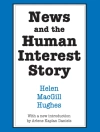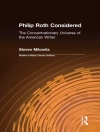Scholars have used Levinas as a lens through which to view many authors and texts, fields of endeavor, and works of art. Yet no book-length work or dedicated volume has brought this thoughtful lens to bear in a sustained discussion of the works of Shakespeare. It should not surprise anyone that Levinas identified his own thinking as Shakespearean. ‘The play’s the thing’ for both, or put differently, the observation of intersubjectivity is. What may surprise and indeed delight all learned readers is to consider what we might yet gain from considering each in light of the other.
Comprising leading scholars in philosophy and literature, Of Levinas and Shakespeare: ‘To See Another Thus’ is the first book-length work to treat both great thinkers. Lear, Hamlet, and Macbeth dominate the discussion; however, essays also address Cymbeline, The Merchant of Venice, and even poetry, such as Venus and Adonis. Volume editors planned and contributors deliver a thorough treatment from multiple perspectives, yet none intends this volume to be the last word on the subject; rather, they would have it be a provocation to further discussion, an enticement for richer enjoyment, and an invitation for deeper contemplation of Levinas and Shakespeare.
Table des matières
Foreword, by Andrew Cutrofello
Preface and Acknowledgments
Abbreviations
Introduction, by Moshe Gold and Sandor Goodhart
1. A Meditation, by Richard A. Cohen
2. Lear’s “Darker Purpose”, by Sandor Goodhart
3. Girard and Levinas as Readers of
King Lear, by Ann W. Astell
4. Theology, Phenomenology, and the Divine in
King Lear, by Kent R. Lehnhof
5. Investment, Return, Alterity, and
The Merchant of Venice, by Geoffrey Baker
6. Traces, Faces, and Ghosts, by Hilaire Kallendorf and Claire Katz
7. From Horror to Solitude to Maternity, by Steven Shankman
8. The Frustration of Desire and the Weakness of Power in
Venus and Adonis, by Sean Lawrence
9. Ethical Ambiguity of the Maternal in Shakespeare’s First Romances, by Donald R. Wehrs
10. Culinary Skepticism in
As You Like It and Montaigne’s “Of Experience”, by David B. Goldstein
11. Staging Humanity in
As You Like It and
Pirkei Avot, by Moshe Gold
Works cited
Contributors
Index
A propos de l’auteur
Moshe Gold is an associate professor of English and director of the Rose Hill Writing Program at Fordham University. A coeditor of the
Joyce Studies Annual, Gold has published on Joyce, Plato, Levinas, Derrida, and the Talmud. His work on the Polish director Kieslowski appears in
Of Elephants and Toothaches: Ethics, Politics, and Religion in Krzysztof Kieslowski’s Decalogue.
Sandor Goodhart is a professor of English and Jewish Studies and director of the Religious Studies Program at Purdue University. He has published over one hundred essays and six books, including
Sacrificing Commentary: Reading the End of Literature (1996),
The Prophetic Law: Essays in Judaism, Girardianism, Literary Studies, and the Ethical (2014), and
Möbian Nights: Reading Literature and Darkness (2017).
Kent Lehnhof is a professor of English at Chapman University. He studies early modern literature and culture and has published extensively on Sidney, Spenser, Shakespeare, and Milton. Recent work has appeared in
Renaissance Drama, Modern Philology, and
Shakespeare Bulletin.












